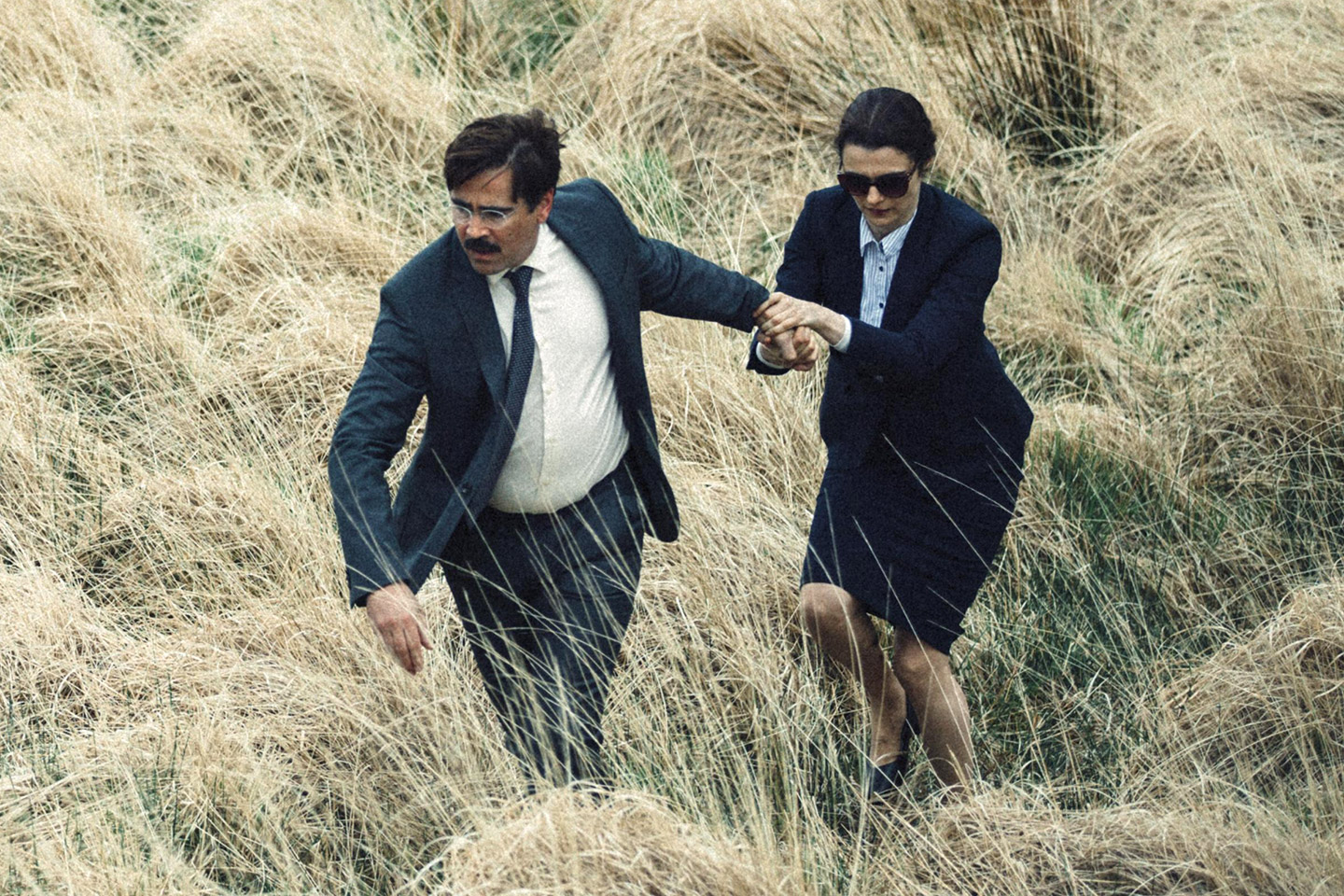Everyone must have asked at some point, “If I could be any animal I wanted, which one would I be?” The hero of Yorgos Lanthimos’s new film, The Lobster, chooses the eponymous crustacean. They live for a hundred years, they have blue blood “like aristocrats,” and David (Colin Farrell) likes the sea.
David lives in a strange time and indeterminate place where it is illegal not to be partnered. Single people are taken to a mysterious, old hotel and given forty-five days to find a love match. If they don’t, they’re turned into the animal of their choice. Clearly, they don’t have Tinder.
Why are single people singled out for an either-or like this? Who is funding it? Is someone implying that single people are lower and more repulsive than non-human animals? In any unfamiliar world presented on screen, the parameters and rules—the internal “culture”—have to be spelled out by the end of the first act. Director Lanthimos (Dogtooth) smoothly eases us in. Along with a slightly bewildered David, we learn what lies ahead. He appears neither totally onboard nor inching to bolt—out of fear or sheer rebellion. He’s actually a bit of a cipher. But we all know something’s got to give.
The first hour or so of this quirky flick is engaging and entertaining—visually and philosophically. The oddities of the mating dance itself get trotted out for all to snicker at and ponder, especially its public side. Think about it: we have plenty of personal reasons to hook up or do the happily-ever-after thing, but we’re also subjected to other people’s ideas about whom we do or don’t do it with. At the hotel, standards of conformity are elevated (or degraded) to officialdom. Shades of 1984.
It has to mean something that all the men in the hotel are similarly kitted out in blue shirt, gray pants, and navy jacket, and the women wear identical dresses and shoes. Likewise, the bases of attraction, such as it is in this world, are very flimsy. Despite the ridiculous details, it isn’t funny for very long to watch mostly nice, ordinary people count the days to what amounts to punishment plus exile. We start to twig to a rather nasty, underlying message about modern love. (Maybe Lanthimos’s next allegorical film can deal with childless couples.)
Despite the ridiculous details, it isn’t funny for very long to watch mostly nice, ordinary people count the days to what amounts to punishment plus exile.
As David’s days in the hotel tick by, he sets his sights on a cool, unsmiling blonde whose “defining characteristic” (the way people seek each other out, kind of like Match.com) is a total lack of empathy. He convincingly acts just like her in order to catch her attention. Everyone claps as the hotel hosts (leaders?) announce their new relationship on the stage of the ballroom. A few days later, the heartless woman tests him by killing someone; he breaks down in tears. She announces, “A relationship cannot be built on lies,” as if his subterfuge—pretending to be as unfeeling as she is—is worse than the brutal way she finds him out.
In turn, he escapes into the arms of another kind of extremist group (led by a scary Léa Seydoux) living rough in the nearby rainforest. In the hotel, no one is allowed to be alone for long. In the forest, no one is allowed to pair up or even flirt. In either case, nonconformity is punished severely. Sadly for our bespectacled hero, he meets Short Sighted Woman (Rachel Weisz), and they click. Talk about bad timing.
It is hard to say what we should conclude from the second, weaker, half of this film. David is hardly better off amongst the loners in the forest, though he says he does not “miss companionship at all,” and it is nice to have “nobody tying you down.” His flat delivery makes us question everything that comes out of his mouth. Then again, maybe everyone in this world has had their soul sucked out long ago. He and his new girlfriend seem like puppets, not lovers. No one else has any fun, either.
In any case, Lanthimos drops the ball. He makes rules only to break them, losing any credibility he builds up with patient members of the audience. As a consequence, what could have been a wry look at empty dating rituals—most notably, in the absence of our now-ubiquitous technology—ends up limping to a gruesome conclusion. The only way to maintain a relationship, he seems to say, is to admit that true love is blind. FL









